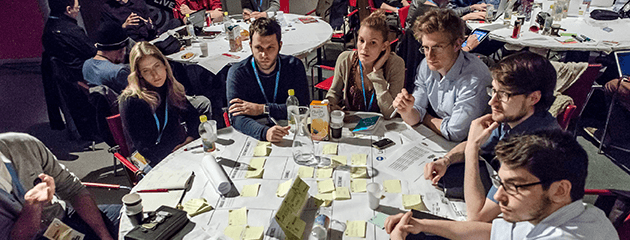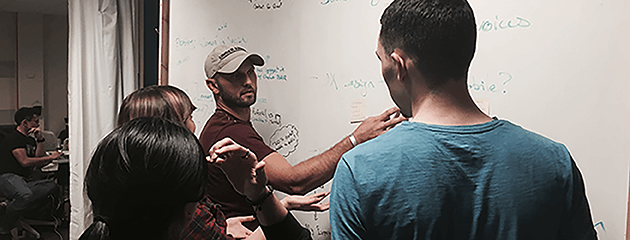Sponsored: Why Your Degree Doesn’t Hack It in Tech NYC


Alison Tugwell is the community marketing manager for Startup Institute New York– an eight-week program that gives with the skills, mindset, and network to get a job and thrive in a startup career.
We are New Yorkers – we like options. There is no lack of places to go if you want to ramp up your skills and advance your understanding about a particular area. Of course everyone knows NYU– their school of continuing studies proves a more traditional in-classroom experience and if you have the budget, there is little limit to the subjects they cover. Baruch College has convenient schedules for busy people and a great location in Flatiron to boot. But there is something too distant about ‘traditional’ educational that does not translate for the New York startup community. We need a hands-on experience and a practice-based approach to learning, and now handfuls of studies are confirming this notion.
The National Training Laboratories reports that only about 5% of information delivered through lecture is retained – yet the study shows 70% retention for learning by doing. Computer science majors at universities focus mainly on terminology and analysis, practicing programming languages that are no longer on the bleeding-edge. Another long-term study ran by Robert Kelley at Carnegie-Mellon University found that 90% of the hard skills needed by today’s knowledge workers are gained through on-the-job learning.
Think about any new hobby or skill that you are interested in– you would not learn by studying the craft from a distance. Sure, maybe you start ‘googling’ it, but what you really want to do is start getting your hands dirty doing it yourself. Luckily for us, we live in the most accessible city in the world, and you don’t have to go far to roll up your sleeves and get your hands dirty in a Batik dye-ingclass at Brooklyn Brainery.
So what does this mean for the NYC innovation economy? Growing startups are looking for the people who have the know-how– and the guts– to build the plane while in-flight. Small startup teams face-off against disheartening odds that they’re more likely to fail than succeed — bootstrapping creative solutions with limited funds and resources. There is no textbook for this kind of work.


When Eric Franchi, co-founder of digital advertising company Undertone, got frustrated with how long it took to deliver real results for brands from digital ads, he set out to build a solution. The ‘Viewable Impression Guarantee Program’ his team rolled out aimed to show display ad-success rates faster, and the guarantee meant just that–he gave refunds to customers that were unsatisfied. Pretty risky for a bootstrapper, but Franchi and his team were relentless. Other companies build user-learning into their products. Appboy, a mobile marketing solutions platform, allows customers to literally take marketing solutions into their own hands. They also have the Success squad which, not unlike the Geek Squad, will walk you through the process and implementation, knowing that practice, and not a user-manual, is what makes learning stick.
It can be extremely challenging to move forward without time-tested methods and banks of customer data to dip into. Today’s innovation leaders start with a few key initiatives, striving to make informed choices based on what little demographic info they do have. They test, they optimize, and they test again. Not to discredit the practices and principles that are proven effective– of course startup bibles like the Lean Startup by Eric Ries are still very much in circulation. But the applications for these guidelines and principles are varying and are being updated with new technology. The Lean Startup Machine was born, for example, for budding entrepreneurs to bring the methodologies from Ries’s book to life for their own business ideas in one jam-packed and rigorous weekend, and they are doing it in almost every city, too.
High-growth companies are fast-paced, action-oriented, and future-focused, so they need to hire people practiced in learning new skills on the job. This is where higher ed falls short– bogged down by bureaucracy and detachment from industry, and focusing on lectures and out-dated concepts, rather than practice. This is why we have a talent gap in the tech sector, and why we need to rethink education in New York City.
Let’s get closer to what we’re learning. As New Yorkers, we are not scared to be on top of each other every morning on the L train. Why shouldn’t we fully immerse ourselves in the industries and skills we want to learn, too?
You might also like 





















